Filmmaker Christopher Landon might be best known for his work in the horror genre, which comes with the territory when your filmography includes the screenplays for no less than five Paranormal Activity sequels, as well as his directorial efforts including Scouts Guide to the Zombie Apocalypse, Happy Death Day, Happy Death Day 2U, and Freaky, but he’s ready to branch out.
Landon’s hallmark has been balancing blood-soaked thrills with laugh out loud comedy, but his latest feature sees him take on his biggest challenge yet. On the surface, Netflix’s We Have a Ghost sounds like it would be a straightforward fit for his sensibilities given that the story finds a teenager making friends with the spectral apparition who dwells in the house his family have just purchased, but it’s an entirely different type of movie from what we’ve become used to seeing from Landon.
Ahead of We Have a Ghost premiering on Netflix this Friday, We Got This Covered had the chance to speak to Landon about his biggest, most accessible, and ambitious feature yet. During our deep dive, we go over the star-studded cast that includes David Harbour, Anthony Mackie, and Jennifer Coolidge, how it feels like a project he’s always wanted to make, the status of both his Arachnophobia remake and future collaborations with Blumhouse, future dream projects and much more, which you can check out below.
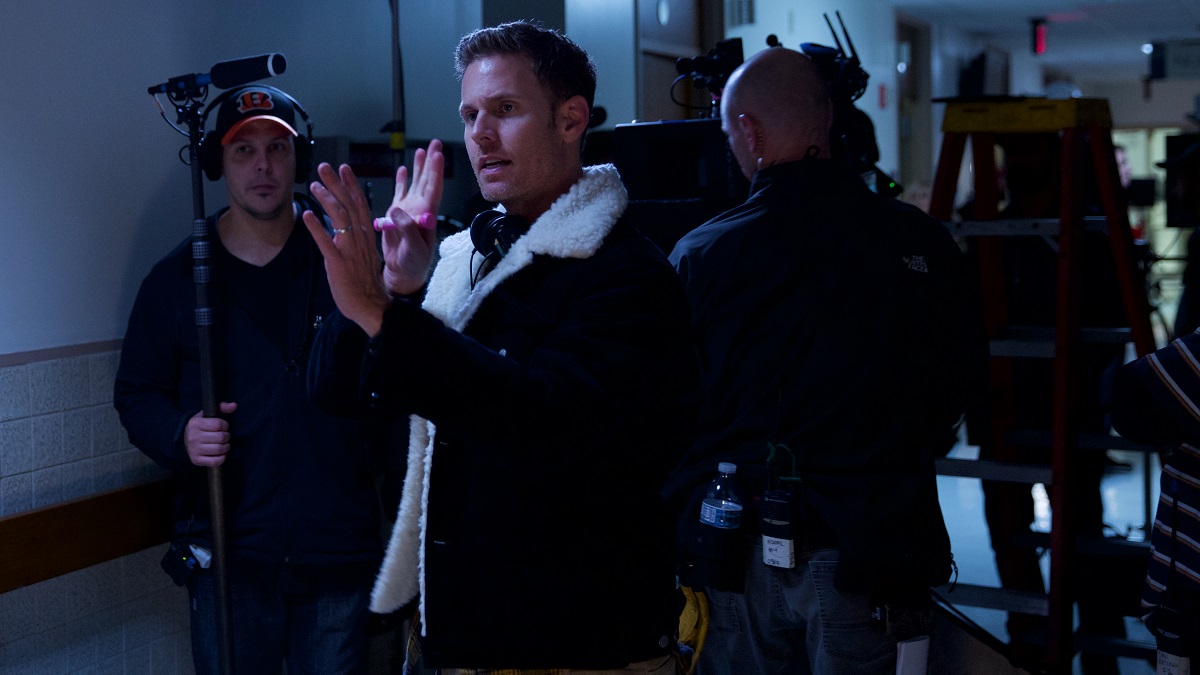
You were first announced to be making this film way back in November of 2017, so how does it feel more than half a decade on knowing that it’s only a couple of weeks away from finally premiering?
Yeah, this was a journey! I mean, it’s, it’s exciting, and it’s a relief. It’s nerve-wracking. I don’t have any fingernails, I bit them off! This was a really, like I said, it was a very emotional journey for me. So I’m just really glad that it’s finally happening.
You’ve made PG-13 movies before, but they still leaned further into the horror side of the equation. We Have a Ghost could be called your most accessible film yet in terms of reach and tone, so is that something you’ve always had in the back of your mind that you wanted to try?
100 percent. I mean, look, I’m always a genre fan. And I love making horror films, and I love to kill people! But I really wanted to explore another side of myself as a filmmaker, and as a storyteller. As someone who grew up watching Amblin and being a huge fan of Steven Spielberg’s movies, he’s a huge influence for me. And so I just wanted to kind of try and flex that muscle a little bit and show people that I’m not just all evil!
It shows a different side of you as a filmmaker, not just in terms of scale, but it’s got an almost operatic feel at points, and a sense of old-fashioned adventure that gives off a 1980s vibe, and it comes across that tonally at the very least, this is a film you’ve always wanted to make.
Yeah, it’s funny, when I read the short story, that was the feeling that I was struck by, it was this sort of sense like, “Wow, I, I’ve been waiting for this my whole life. And I know this, and I know what to do with this.” And that’s why I really just sort of jumped into it headfirst, and really was very aggressive and dogmatic about just trying to actually get the film made.
There are a lot of similarities to the short story, but a lot of deviations as well. What was your creative process when it came to deciding what to remove, what to change, and what to add that was entirely brand new?
What I was drawn to, from the short story, was this very fresh take on a haunted house. And really, I liked how the story brought the idea of a ghost into into our century and into our times. But what I recognized pretty early on was that it felt like the story wasn’t entirely Kevin’s story, it felt very much like Frank’s story in many ways.
And so that was a big thing that I needed to adjust. I really wanted the movie to be about Kevin and his relationship with this ghost, and how they sort of find common ground and similarities with each other. And then ultimately, I just wanted Ernest to have sort of a quest, I needed him to sort of have a journey.
And so, creating this idea that he had no memory and didn’t know who he was, or why he was stuck in this house, and sort of letting that be sort of the actual engine of the movie was something that I added, and ultimately creating a villain of sorts, of having having them being pursued by sort of a shadowy government agency was another thing that I wanted to add, just to kind of raise the stakes and keep things moving along.
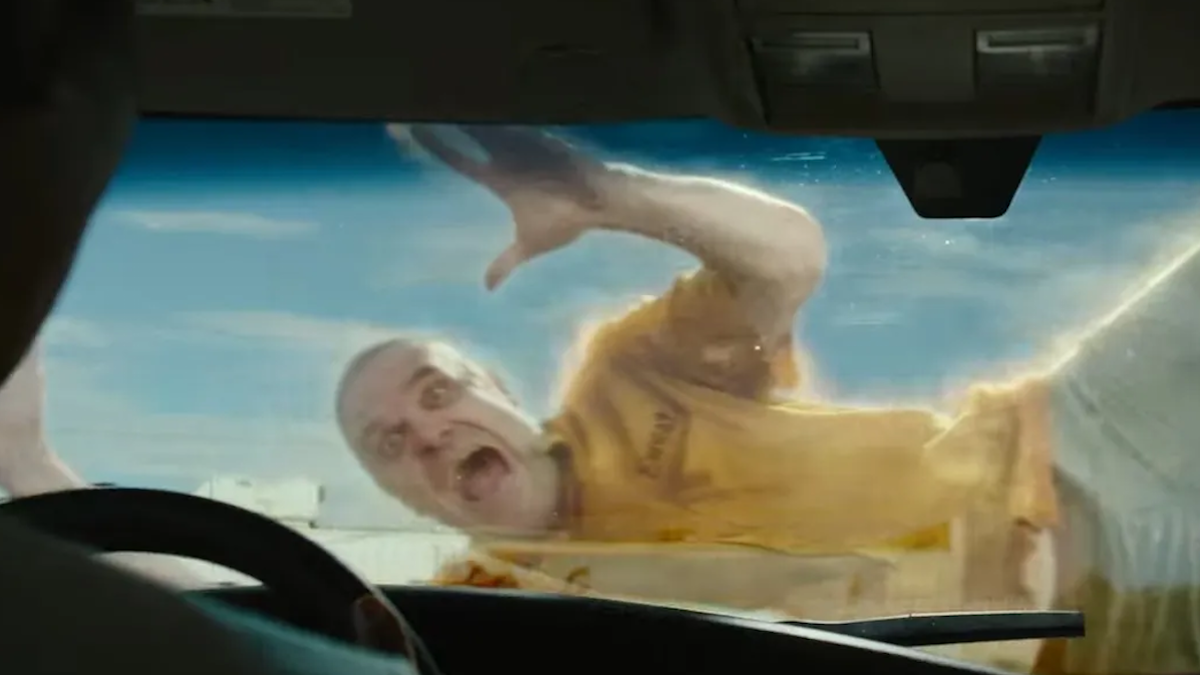
I’m a sucker for when the title of a movie is dramatically said out loud by one of the characters, so I couldn’t be happier that it comes in the first act. Presumably, the title was changed because there are already a lot of movies with ‘Ernest’ in the title, and not all of them star Jim Varney, either.
Yeah, I mean, it’s funny, like the title never asked for a movie. It never really stuck for me. And we knew we were going to change it. And it’s funny because it wasn’t like there’s a line in the film. But I was drawn to the simplicity of We Have a Ghost, you know? It just tells you what it is, it doesn’t make any sort of muck about it. It’s just like, there you go, here’s your movie. And so that made a lot of sense to me.
As you were saying, you wanted to move away from it being Frank’s story, but for the opening stretch of the movie, Frank could broadly be described as a bit of a dick, so it probably obviously helps having someone as charming and charismatic as Anthony Mackie ensuring that there’s always going to be a degree of sympathy.
Yeah, I mean, that was 100 percent why I wanted Anthony. Because in the short story, Frank is a complete asshole. And I didn’t want the audience to completely turn against him and hate him. And so, Anthony has pure charisma, and you root for him. And I think you understand that he’s trying to do the right thing.
He’s just going about it the wrong way. And I think that’s a very relatable thing. I think we all want to shine and have our moment in the sun, and be the savior and the hero to our families. But sometimes, we try to take the shortcut, which is the thing that Frank has done his whole life, and it never works.
Were there a lot of conversations and discussions between yourself and David over how to play Ernest, because there needs to be a fully-realized performance without saying a word, and it could sink the entire film if it isn’t up to scratch.
Yeah, for sure! And it’s funny, because in previous iterations, I had versions of Ernest speaking. I mean, initially, he was silent. And then – this is when I was working with with a different group of people and an earlier version of the film – they raised that as an issue, they were worried about it. And so I had Ernest speaking through an old Speak & Spell device.
But then I was like, “Oh god, that’s gonna get really fucking old”, you know, like hearing that voice. And I really had confidence in in finding the right actor who could give you that performance, that would just give you so much with so little, and I knew David was the guy for that role. And I really felt like that was critical. I needed, I wanted Ernest and Kevin to have to communicate with each other in a different way, and not in such a literal way.
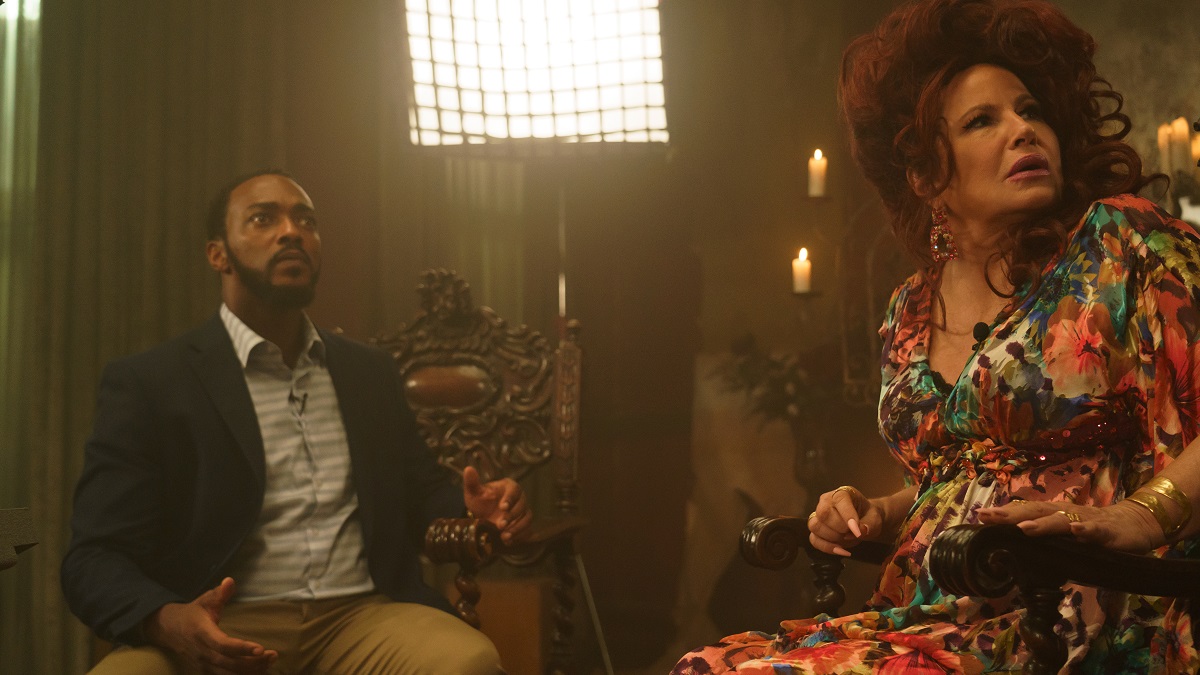
As someone who’s worked a lot with practical effects over the years, were there any new challenges, difficulties, or restrictions you faced having a main character that’s CGI? Even though there is an actor giving a performance.
Yeah, it was very challenging. And it was… I had a lot to learn. And it was I was actually wonderful. And also totally irritating. Because we, basically every time we shot David Harbour, we had to shoot him four different ways. And so for every scene in every shot, we had to do it four times.
So sometimes it felt like I was making four movies instead of one. So it’s just more time consuming than anything. And time is always the enemy on an on any film. So that was the hardest part about it. But once we kind of got our sort of rhythm down, I think it went relatively smoothly.
And I’m really happy with the way that he ultimately turned out. We worked really, really, really hard for a long time to kind of really hone his look as a ghost. And to sort of try and not reinvent the wheel, but to not do the same old, same old either.
History has shown that people love seeing Jennifer Coolidge doing Jennifer Coolidge things, so was there much direction required on your part when it came to shooting her scenes?
What was great about Jennifer was that when she read the script, and we talked for the first time, she said, “Wow, this woman’s a real phony.” And I said, “Yeah, she is,” and then Jennifer goes, “I love playing phonies!” So she really understood it. You know, she understood that this character is just this person who just doesn’t believe in any of this stuff at all.
And so, I think it was such a fun choice and such a fun way to approach the role. But yeah, I mean, look, when you have Jennifer Coolidge, you just kind of put a camera in front of her and you just go, “Alright,” and she does. I mean, there’s so many outtakes that I couldn’t use ultimately, where she is so incredibly funny, but there just wasn’t time.
The film makes a good point in that confirmation that ghosts exist would be one of the biggest discoveries that could change everything we know about life and death, but also that the first thing people would do without a doubt is record it for social media to try to monetize it, which is pretty telling for where the priorities would lie.
Yeah, it is. It’s true. I mean, what’s really funny, too, is that not only would we immediately start to try and figure out how to monetize it, but we would also find a way to start fighting about it. And that’s something else that kind of happens early on in the film.
It’s just like, no matter what it is, everything is some sort of divisive lightning rod that separates people, and Ernest is no exception. And so it was fun to get to kind of poke fun at our sort of crazy social media culture, and how we all live in such separate worlds and in our bubbles.
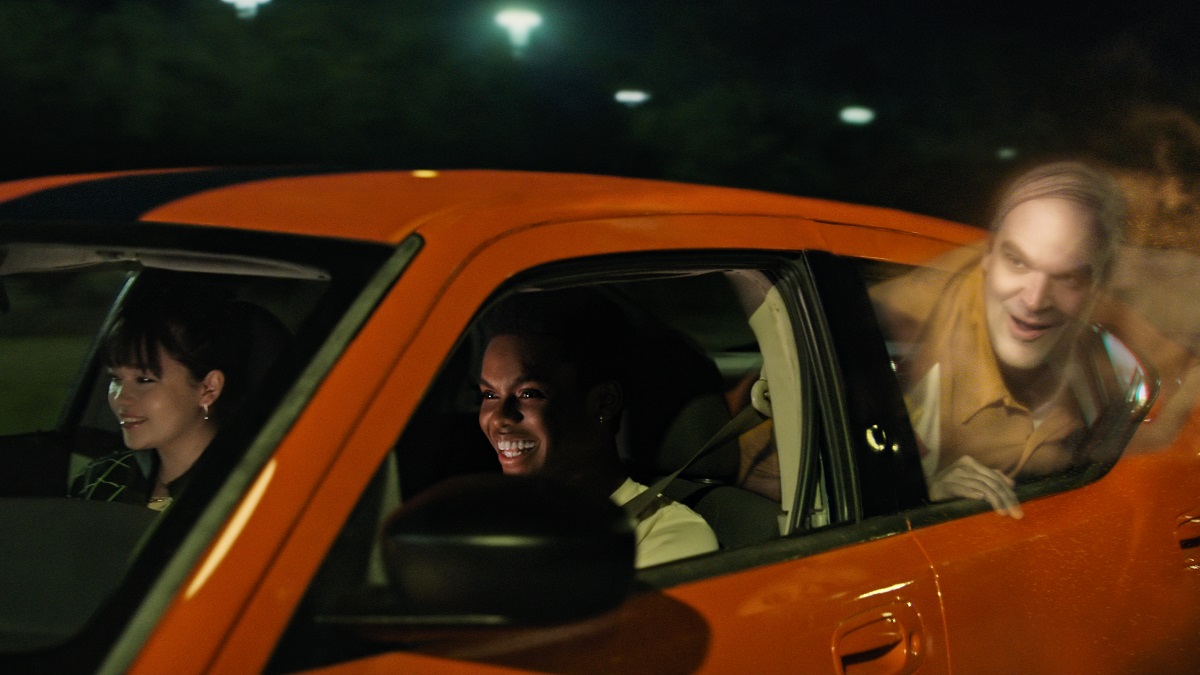
There are a couple of action scenes in the film as well, a big car chase midway through, is that another itch you’ve been hoping to scratch for a while?
Yeah, it was so fun. It was so fun. Again, really, really hard, really complicated, because it wasn’t just the fact that we were shooting a big action sequence, it was that we were shooting a big action sequence with a character who was also a ghost. So that complicated things even more. But I’m really proud of that sequence. And it’s really, really, really fun. And I would love to crash more things and blow more things up, if I can.
The majority of your filmography has woven between horror and comedy, often combinations of the two, but are there any other genres you’re desperate to take a crack at, whether it be sci-fi, action, romance, or anything else?
I mean, look, I think if there’s one thing I think I’m drawn to, it’s not… I don’t know if I’m ever gonna make a film. That’s just one thing. You know, maybe I’m too sort of greedy, story-wise and narratively, but I do like to blend things a bit. I would love to make like a big, fun, fantasy adventure movie. I think they’re a little bit missed.
I don’t think we see enough of them. But I also, it’s all sorts of spectacle I love. I mean, I still want to make more horror films. And thrillers, you know what I mean? I think like a nice classic old-school thriller would be amazing too, like a Dead Calm, I really love that stuff. So that would be something else that I would really like to do.
You were talking about your love of all things Amblin earlier, and you’ve been announced to be writing and directing a new version of Arachnophobia, which is an Amblin classic. How’s that coming along? And what sort of pressure have you put on yourself trying not just to match, but outdo a classic?
It’s so funny. Yeah, I mean I’ve been talking about Amblin for so long, and now I’m like… actually, I was just in a meeting at Amblin. And I met with a spider wrangler, and he was showing me all different kinds of species of spiders, and I was terrified. So it’s a huge dream come true.
I’m a huge fan of the original. I think it’s a really, really fun film. But I don’t, I’m not trying to apply any kind of pressure to myself. I don’t want to be in competition with another movie, that movie will always stand alone. And so for me, the goal was to just – and the reason why I agreed to do it in the first place – is not just because, “Ooh, here’s a cool remake.”
I actually had a take, I had an idea for it that was different from the original, but still honors, I think, the original and I’m just very, very excited and very eager to make that film. I think we’re gonna make it this year, it feels I don’t want to like jinx it, I’m knocking on whatever I can find. But we’re pretty far along in the process. So I feel like it’s looking good.
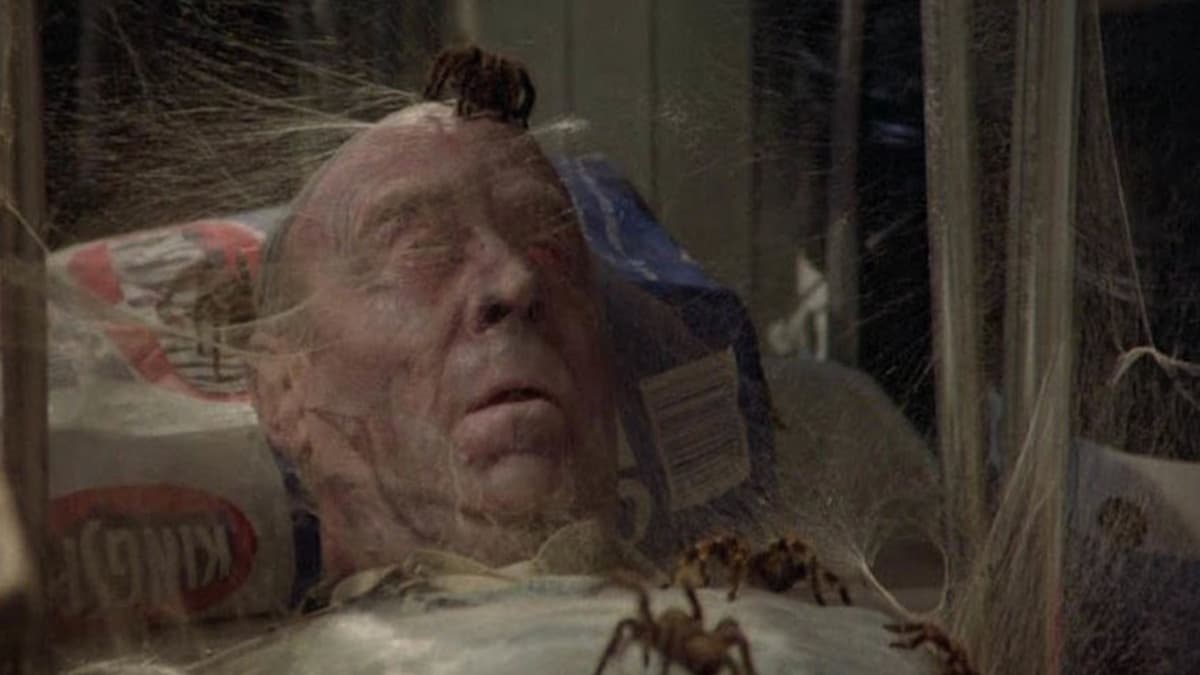
Even though We Have a Ghost is more family-friendly than we’ve seen from you before, it’s still got that subversive streak your films are known for. One thing audiences will definitely expect is for Ernest to speak eventually, and they’ll expect certain arcs to be resolved in the way they usually are, but it doesn’t happen like that. So were you always, when writing and directing, making sure you didn’t go too far down one path?
Again, I think what was so nice about writing this movie, is that I really saw the movie in my head very quickly. And so, it wasn’t as calculating, in that I didn’t stand in front of a big whiteboard trying to sort of figure out, “Okay, now where should I turn?” I really knew what I wanted the movie to be, and how I wanted to see it.
And for me, that’s always sort of the best way as a writer. I should say, it’s usually the best indicator that I feel like I’m on the right path, is when I feel like I’m just watching the movie as opposed to really sort of plotting it out carefully. So yeah, it was just the movie that I really wanted to see.
You were very outspoken last year regarding day-and-date releases. With your latest film releasing on Netflix you’ve experienced all sides of the dice, so is the happy medium or something approximating it making it clear to filmmakers whether streaming or theatrical is the ultimate destination from the beginning and sticking rigidly to that strategy?
I mean, look, I’m open to all all all modalities, all possibilities. I loved making this movie for Netflix, I had a wonderful experience. I think what has changed me in the past is how a lot of filmmakers get blindsided by how they think they’re making a movie for a theatrical release, and then suddenly, they’re not.
And so that’s something that I’m personally very against. I don’t think anyone wants to have that rug pulled out from under them. Now, I understand that there are economics, and there are all kinds of things that can play into that decision-making process, which as a filmmaker, you really are not involved in. But nevertheless, I think it’s, really, really, really painful for a filmmaker who’s really dedicated their themselves to a certain kind of experience, and to have that change without their say.
And so I think that’s what I’ve been more vocal about. And that also, I think that there’s room for everything, and I think that’s what hopefully people are figuring out. But like I said, I understand that sometimes there are just things that happen that are just out of your control.
There’s even been a couple of movies that were announced for streaming, and then ended up getting moved to theatrical.
Exactly! That’s an entirely different category. Give me my Smile, I want that to happen! But that’s a great movie, you know what I mean? And I think it’s a vote of confidence that people want to see movies in the theater, and that we don’t have to make that compromise, we can we can put a movie in the theater, let it have its moment, let it have its run, and then stream it. And just as many people are gonna watch it, so I think it works both ways.
We Have a Ghost has been a labor of love to get to the screen, and now it’s going to be available to upwards of 200 million people at the push of a button, so there are obviously plenty of positives in making a film for streaming.
Yeah, it’s an interesting thing. Like I said, this is my first time to this particular rodeo. So I’m very curious to see how it all plays out. And I’m thrilled that lots of people will have access to it. And I’m hoping that lots of people will will see it and enjoy it. You know, that’s I think any filmmaker or storyteller’s goal.
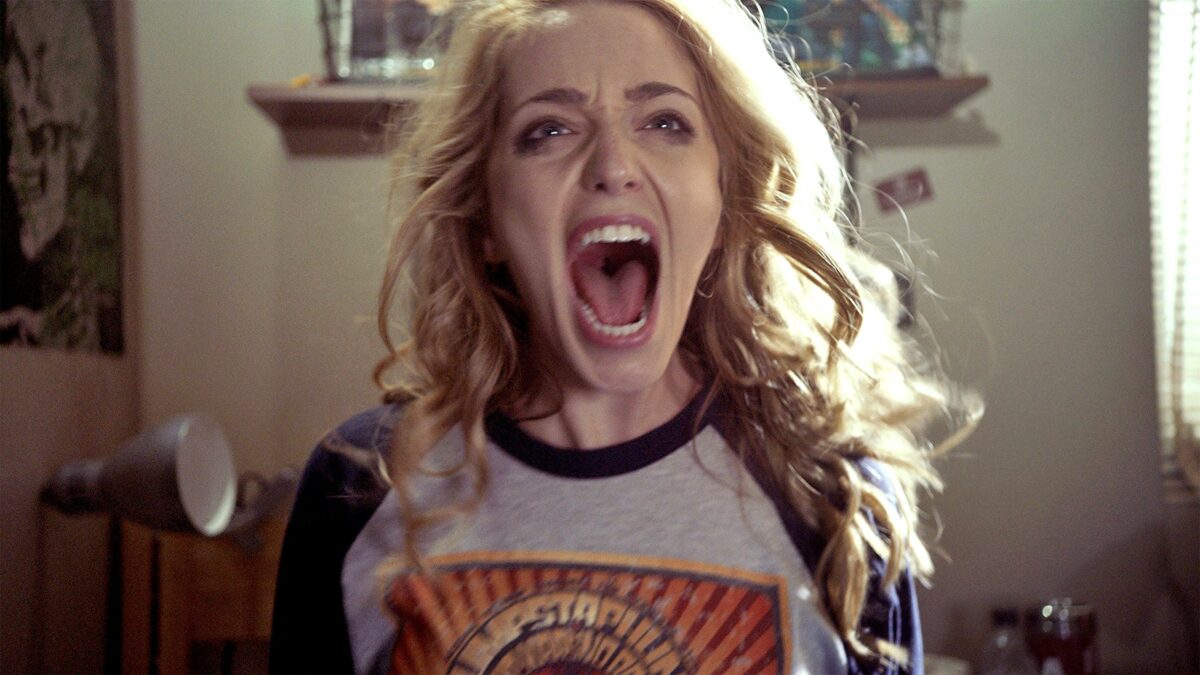
You’re probably sick to death of being asked about Happy Death Day 3, so instead I’ll ask that even if it never ends up happening, would you be happy to continue working with Blumhouse given the success your collaborations have enjoyed over the years?
Of course! I mean, I love working with them. Jason is great. I think it’s just a matter of just finding finding the right thing that’s a good fit for us again, but I have no doubt that we’ll work together again in the near future.
If you could direct any project of your choosing without restrictions, as in someone comes up to you and says ‘whatever you want you start tomorrow’, what would it be and why would it be that?
Oh, gosh. I have a book. I should say, it’s not my book. It’s someone else’s book. Someone else wrote the book. There is a book that I would love to adapt. It’s sort of a dream project of that I’ve had in the back of my head for a long time. But it’s a very big, epic adventure. Very expensive.
Which is why no one has thought of it for me before, but I would love to do it. I don’t want to give the title away because I don’t want to jinx it, because I’m kind of still holding out hope that I might actually get to do it one day, but that would be my dream. My dream job for sure. And also, if it ever came my way, I would in a heartbeat do a sequel to Gremlins, because I’m obsessed with Gremlins.
We Have a Ghost premieres on Netflix this coming Friday, Feb. 24.

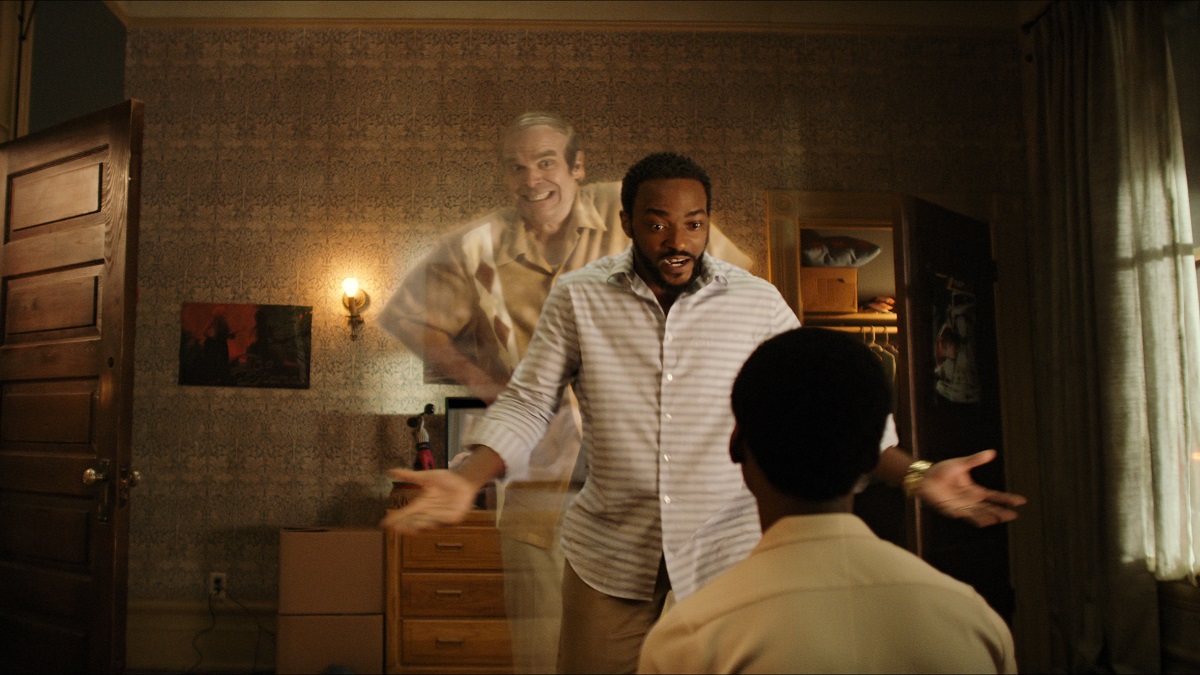
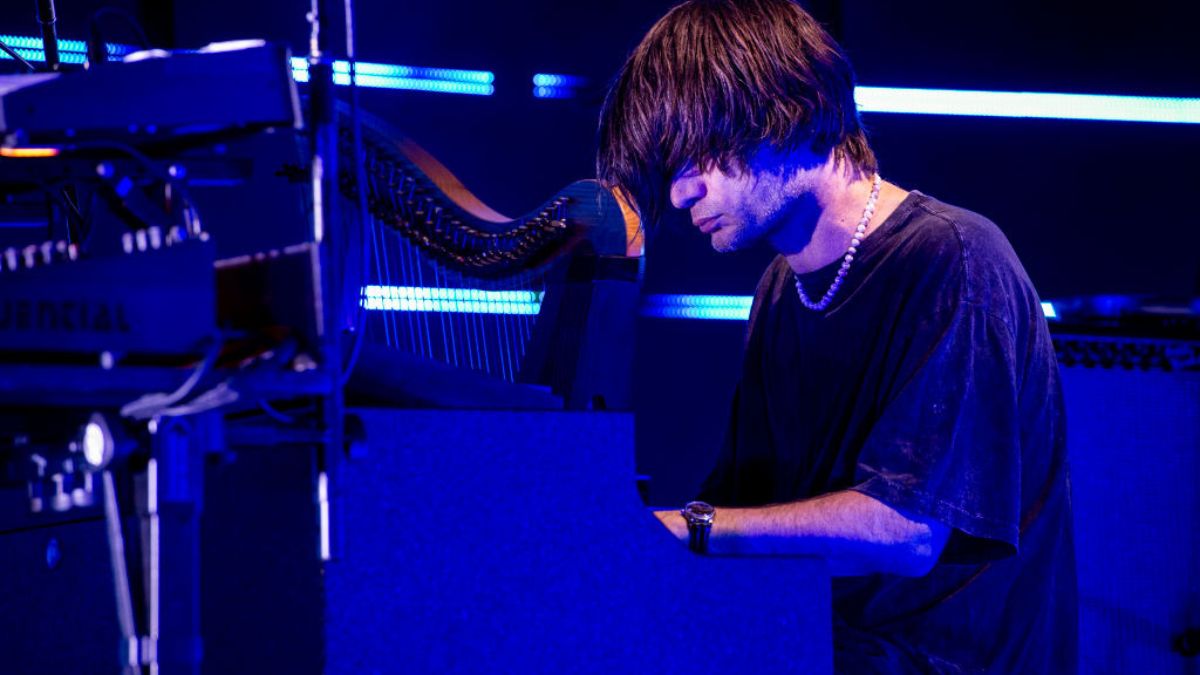








Published: Feb 22, 2023 12:14 pm